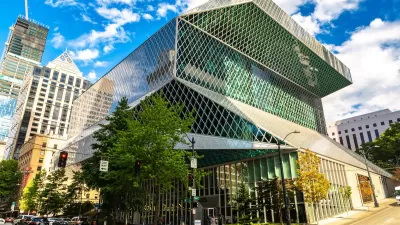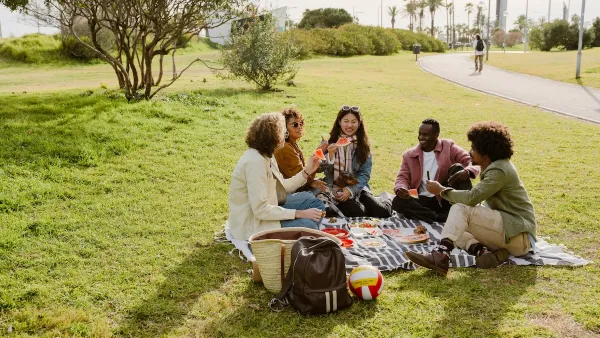Richard Florida speaks with sociologist Zachary Neal, author of The Connected City, a new book that examines the essential role that social networks play in defining community.
"Community" is a squishy topic bandied about much too casually in contemporary discourse on urbanism without adequate definition. Is community defined by arbitrary geographic or political boundaries? Is it defined by a shared belief system?
In an interview with Richard Florida, Neal touches upon some of the themes examined in his new book, The Connected City, in which he defines communities as networks, rather than places. "We often think of communities in place–based terms, like Jane Jacobs'
beloved Greenwich Village," he says. "But, whether or not a place like Greenwich
Village is really a community has more to do with the residents'
relationships with one another - their social networks – than with where
they happen to live or work."
"A neighborhood where the residents never interact is merely a place," says Neal, "but hardly a community....Communities aren't disappearing, but to find them we need to stop looking in places, and start looking in social networks."
FULL STORY: Communities Aren't Just Places, They're Social Networks

Planetizen Federal Action Tracker
A weekly monitor of how Trump’s orders and actions are impacting planners and planning in America.

Restaurant Patios Were a Pandemic Win — Why Were They so Hard to Keep?
Social distancing requirements and changes in travel patterns prompted cities to pilot new uses for street and sidewalk space. Then it got complicated.

Map: Where Senate Republicans Want to Sell Your Public Lands
For public land advocates, the Senate Republicans’ proposal to sell millions of acres of public land in the West is “the biggest fight of their careers.”

Maui's Vacation Rental Debate Turns Ugly
Verbal attacks, misinformation campaigns and fistfights plague a high-stakes debate to convert thousands of vacation rentals into long-term housing.

San Francisco Suspends Traffic Calming Amidst Record Deaths
Citing “a challenging fiscal landscape,” the city will cease the program on the heels of 42 traffic deaths, including 24 pedestrians.

California Homeless Arrests, Citations Spike After Ruling
An investigation reveals that anti-homeless actions increased up to 500% after Grants Pass v. Johnson — even in cities claiming no policy change.
Urban Design for Planners 1: Software Tools
This six-course series explores essential urban design concepts using open source software and equips planners with the tools they need to participate fully in the urban design process.
Planning for Universal Design
Learn the tools for implementing Universal Design in planning regulations.
Heyer Gruel & Associates PA
JM Goldson LLC
Custer County Colorado
City of Camden Redevelopment Agency
City of Astoria
Transportation Research & Education Center (TREC) at Portland State University
Camden Redevelopment Agency
City of Claremont
Municipality of Princeton (NJ)





























